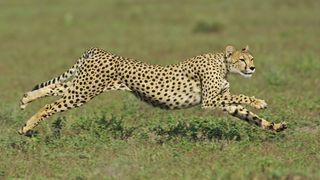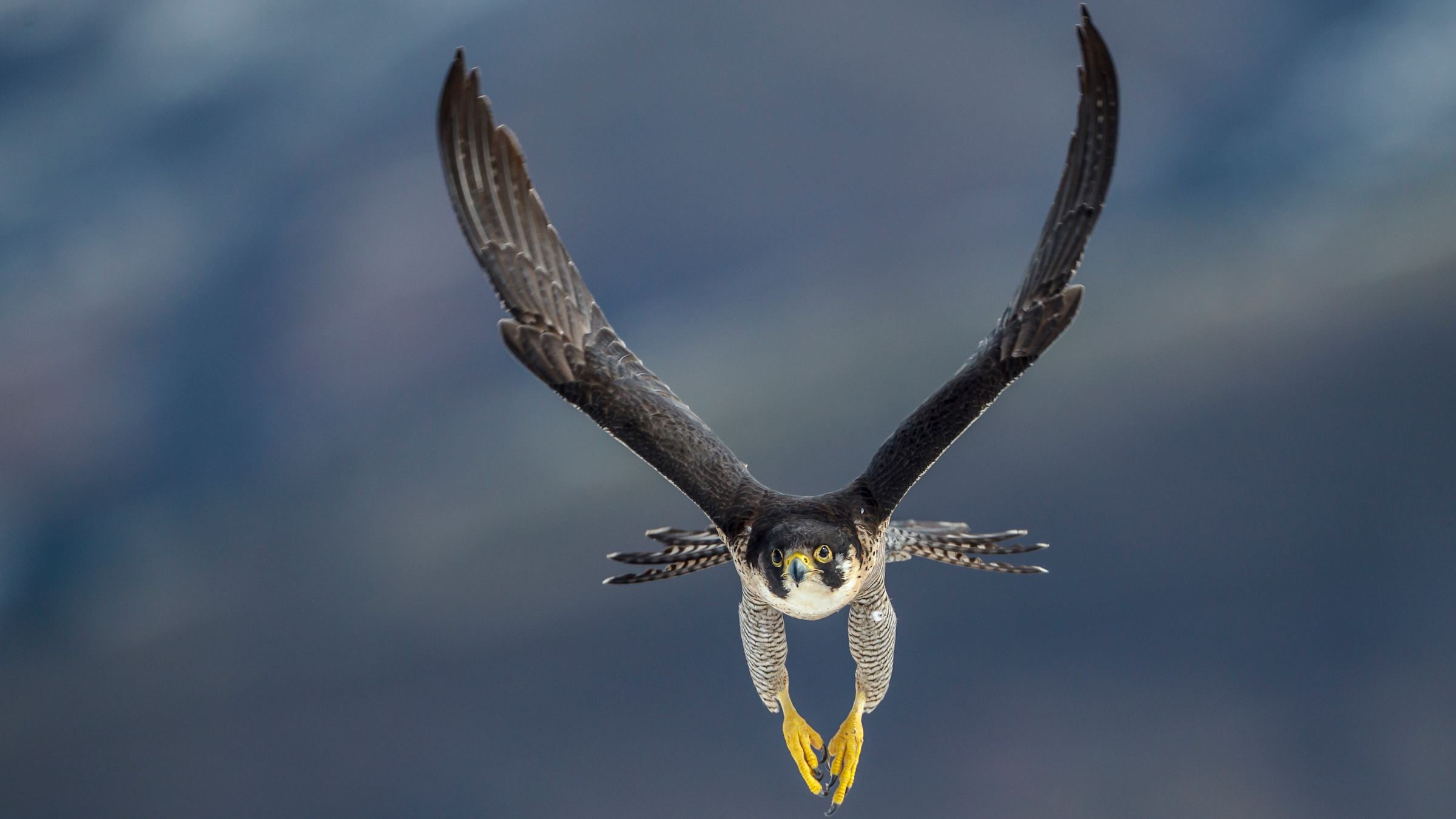Transformers Animated Earth Cybertron Mode Bumblebee Toy
Transformers Animated Earth Cybertron Mode Bumblebee Toy
What is the fastest animal on Globe?

Ask anyone what the fastest animal on Earth is, and they'll probably say the cheetah. Only the focus on the speedy feline has stolen attention from other species that go much faster — some three or more times faster than the cheetah. Who are the overlooked speedsters of the animal kingdom?
To be clear, the cheetah (Acinonyx jubatus) is undeniably fast. And it is true that it'southward the quickest animal on country. With documented pinnacle speeds of 64 mph (103 km/h), the cheetah hands surpasses other swift animals, like racehorses, to take the title of earth's fastest land fauna. And some estimates of their height speed are closer to 70 mph (113 km/h), according to the Smithsonian National Zoo & Conservation Biology Institute.
A combination of leg length, muscle size and a long footstep gives the cheetah the platonic torso for running across country, said John Hutchinson, a professor of evolutionary biomechanics at the Royal Veterinary College in London. Plus, a 2017 model based on 474 land and marine species, ranging from whales to flies, demonstrated that speed is closely tied to size. Speed increases with size until you lot achieve an optimum. Beyond that optimum, larger animals are slower considering they crave more energy to accelerate. A cheetah has the optimal medium size for speed, Hutchinson said.
Related: Why don't tigers alive in Africa?
However, cheetahs are only the fastest animals on land over curt distances. That's because they don't pursue prey at high speeds for long distances. Their hunting strategy is more about accelerating and maneuvering very quickly, according to a 2013 study in the journal Nature. In essence, their endurance is limited. "Cheetahs, like most cats, aren't pursuit animals," Hutchinson said. No other state species tin get to 70 mph, or even 64 mph, simply the pronghorn antelope (Antilocapra americana) is estimated to reach 60 mph (97 km/h) and tin can sustain a speed of 45 mph (72 km/h) for miles, according to the book "Congenital for Speed: A Year in the Life of Pronghorn (Harvard Academy Press, 2003).
Once you lot include marine and avian animals, the competition actually heats upward. The dive speed of peregrine falcons (Falco peregrinus) has been recorded at over 200 mph (322 km/h), according to Guinness Globe Records. In fact, they may dive at speeds of 350 mph (563 km/h), though scientists haven't officially documented a speed that high.

"Quite a few flying birds tin go faster than a cheetah," Hutchinson said. The common swift (Apus apus) has been measured to wing 69 mph (111 km/h), and the white-throated needletail (Hirundapus caudacutus) is estimated to reach speeds of 105 mph (169 km/h), according to the National Audubon Society.
The ocean, too, holds an elite listing of speedsters. Black marlins (Istiompax indica) have been clocked at 80 mph (129 km/h), according to Britannica, and the swordfish (Xiphias gladius) and sailfish (Istiophorus) can attain speeds of 60 mph (97 km/h) and 68 mph (109 km/h), respectively, co-ordinate to data from the ReefQuest Heart for Shark Research.
So, while the cheetah deserves its place among the fastest animals on the planet, it gets an undue share of the limelight. One reason for that, Hutchinson said, is that most animals' speeds oasis't been studied thoroughly. The speeds of racehorses, cheetahs, greyhounds and camels have been measured carefully and repeatedly; researchers even verified that the animals were fully exerting themselves, he said.
But nearly other animals' speeds are just observations and estimates, Hutchinson said. They give us an idea of how quickly these animals move, just the estimates are "not skilful [plenty] data for a nitpicky scientist," he said.
Originally published on Live Science.
DOWNLOAD HERE
Transformers Animated Earth Cybertron Mode Bumblebee Toy
Posted by: amywhoultall.blogspot.com

0 Response to "Transformers Animated Earth Cybertron Mode Bumblebee Toy"
Post a Comment